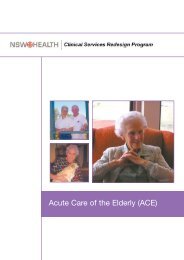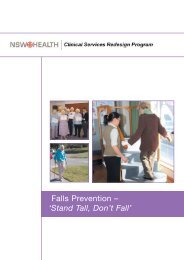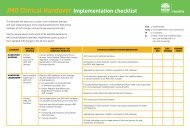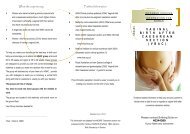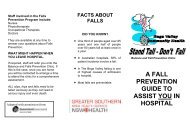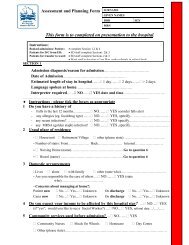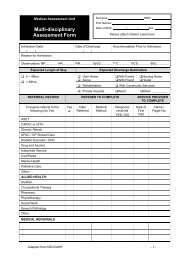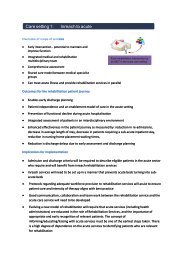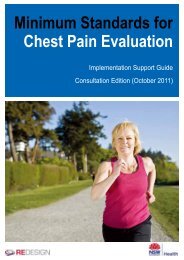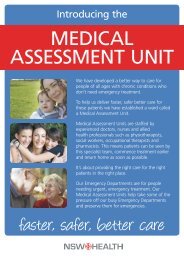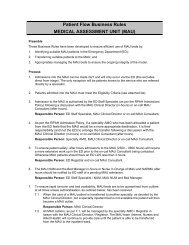A review of literature, 2006 ( pdf - 438 KB) - ARCHI
A review of literature, 2006 ( pdf - 438 KB) - ARCHI
A review of literature, 2006 ( pdf - 438 KB) - ARCHI
You also want an ePaper? Increase the reach of your titles
YUMPU automatically turns print PDFs into web optimized ePapers that Google loves.
Macedonian Women’s Health Project<br />
Review <strong>of</strong> <strong>literature</strong><br />
___________________________________________________________________<br />
Factors influencing the health <strong>of</strong> women<br />
‘Women’s health is seen to depend upon complex interactions between individual<br />
biology, health behaviour and the historical, economic and socio-political context <strong>of</strong><br />
women’s lives.’ (Cohen 1998 p188)<br />
This section <strong>of</strong> the <strong>review</strong> will summarise the available <strong>literature</strong> relating to the<br />
historical, cultural, social and behavioural factors that may influence the health and<br />
well being <strong>of</strong> Macedonian women. A broader and deeper understanding <strong>of</strong> the<br />
influences on the health <strong>of</strong> Macedonian women will hopefully be achieved through<br />
the next phase <strong>of</strong> information gathering when Macedonian women and those working<br />
in the Macedonian community will be asked to share their perspectives on women’s<br />
health.<br />
Historical influences<br />
Given Macedonia’s long history <strong>of</strong> war, oppression and political violence, it is likely<br />
that most, if not all, Macedonian women in south eastern Sydney would have been<br />
touched by these experiences in some way. Case studies involving women (between<br />
50 and 70 years <strong>of</strong> age) from Macedonian villages reveal lives scarred by war,<br />
poverty, hunger, deaths <strong>of</strong> loved ones and family separation (Sapurma-Petovska<br />
1990).<br />
In addition to surviving war, Macedonians have been subjected to long periods <strong>of</strong><br />
repression and subjugation. The dividing <strong>of</strong> Macedonian territory in the 1912–1913<br />
Balkan Wars resulted in the renaming <strong>of</strong> Macedonian cities and villages, unfair Greek<br />
government assimilation policies (Vidanovski 2003) and severe persecution <strong>of</strong><br />
Macedonians during the Greek civil war (Danforth 1993) in Aegean parts <strong>of</strong><br />
Macedonia. Many Macedonians became political refugees at this time (Danforth<br />
1993) and again in the late 1990s after experiencing ‘harassment, threats, damage <strong>of</strong><br />
properties and dispossession by Albanian extremists’ (Karoski 2004).<br />
Unfortunately it is difficult to know the impact that such events as those described<br />
above have had on the health <strong>of</strong> Macedonian women. Assessments <strong>of</strong> the short or<br />
long term effects on civilian populations who have experienced war are scarce and<br />
changes to lifestyle resulting from war are also difficult to measure and attribute<br />
significance in terms <strong>of</strong> life expectancy or resulting morbidity and burden <strong>of</strong> illness<br />
(Pederson 2002).<br />
It is likely that these events have challenged some Macedonians’ confidence with<br />
their Macedonian identity. This issue dominated informal interviews with Macedonian<br />
women in Melbourne, Victoria, where some women explained how their feelings<br />
about their identity had become more positive when they gained a better<br />
understanding <strong>of</strong> the history <strong>of</strong> the Macedonian people (Stanovska 1995). Erosion <strong>of</strong><br />
cultural identity may result from prolonged racial oppression.<br />
- 16 -



